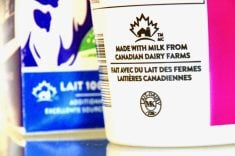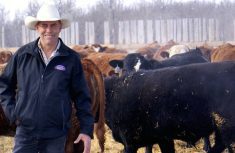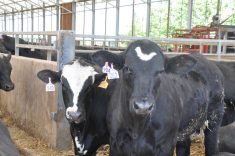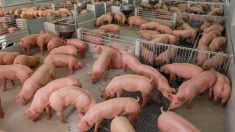Some pieces of agricultural legislation are dead on the Order Paper following Justin Trudeau’s Jan. 6 announcement he would be stepping down as prime minister and proroguing Parliament until March.
The prorogation ends Parliament business and, although there are some rare mechanisms to revive business in the House of Commons, bills before the Senate are dead. Most would have to be reintroduced, even if they were most of the way through the legislative process.
That includes bills like Bill C-282, which would trade supply management off the table the next time Canadian trade negotiators look for concessions and was under committee consideration in the Senate as of Jan. 6.
Read Also

Farm trade policy pundits lay CUSMA odds
What’s the future of Canada’s free trade agreement with the U.S. and Mexico? Policy experts try to read the stars on the issue
Why it matters: Bill C-282, which has drawn both support and backlash from different corners of agriculture, is among the agriculturally relevant legislation now on the chopping block.
Signs also point to opposition parties presenting a non-confidence motion, triggering an election as soon as May. Polling data projects the Conservative party winning a sweeping majority.
Once an election is called, all in-process bills are terminated.
Groups like the National Famers Union (NFU) have voiced support for Bill C-282. An October 2024 NFU statement said the bill would prevent supply management “from being weakened, or even destroyed by those who would use our domestic markets … as a bargaining chip.”
The bill was already facing headwinds prior to Trudeau’s Jan. 6 announcement. An amendment introduced in committee in late 2024 would limit its scope to future trade deals. Existing deals, however, such as the incoming 2026 review of the Canada-United States-Mexico Agreement (CUSMA) were among the driving forces for the bill’s introduction.
The bill’s legislative woes “would mean we wouldn’t have the direction that Bill C-282 would have provided in the next round of discussions,” said Cathy Holtslander, director of research and policy at the NFU.
“We would not have any kind of tariff implications for our domestic market, for the supply managed commodities.”
She said the future of supply management will now be in the hands of the next Canadian government.
“The National Farmers Union, of course, support supply management for many, many good reasons, as do most Canadians,” she said. “It would be a mistake to give up the sovereignty that we currently have over our supply managed sectors and potentially put those sectors in a position where they’re vulnerable to things like the tariff suggestions that (U.S. President-elect) Donald Trump has made.”
The dairy sector has also come out in heavy support of the bill. Last year, the Dairy Farmers of Canada called on senators to support the bill in a written statement, saying it “would safeguard the sustainability of Canadian dairy, poultry, and egg production by preventing further market access concessions in future trade agreements.”
On the other side, the Grain Growers of Canada are in strong opposition to the bill.
“We’ve obviously been lobbying against C-282 for some time now,” said executive director Kyle Larkin, “and the prorogation will either eliminate that bill or will postpone it until a time that it likely won’t be able to pass. So, we’re pleased with that.”
“We think it will have detrimental impacts to our international trade and to the trade agreements that our international trade negotiators are able to get for grain farmers, but also Canadians alike.”
Al Mussell, founder of Agri-Food Economic Systems Inc. and a well-published agriculture policy expert said he thinks the pace of current events will “overtake things,” relative to legislation like Bill C-282.
Much of that is related to concerns around Trump’s next moves on trade.
“I would worry that we won’t have a …. CUSMA renegotiation,” Mussell said. “I think it’s reasonable to worry that early on, the U.S. could just withdraw from it.”
With Trump’s proposed 25 per cent tariff against Canada, Mussel says he sees a “robust trade agreement” with the U.S. being unlikely, regardless of what legislation has been passed in Canada.
Sylvain Charlebois, director of the Agri-Food Analytics Lab at Dalhousie University, also expressed his pleasure at the downfall of C-282, calling it a “misguided trade policy.”
“Bill C-282, championed by a Bloc Québécois MP, aimed to grant permanent immunity to supply-managed sectors,” the self-described “Food Professor” wrote in column also posted to X (formerly Twitter). “This would have barred Canada from making further concessions on these industries, such as granting tariff-free access to foreign cheese, butter, chicken, or eggs.”
Charlebois added that “while supply management plays a critical role in stabilizing certain agricultural markets, the approach proposed in this bill would have significantly narrowed Canada’s trade flexibility.”
















